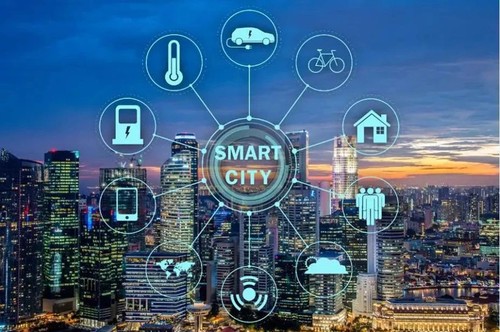Key Takeaways
- Binh Duong’s smart city model illustrates successful public-private partnerships focusing on innovation and community needs.
- Vietnam aims to accelerate smart city initiatives with a projected increase in digital economy contributions to 30% of GDP by 2030.
- Challenges for smart city development include strategy formulation and high initial costs, but they present opportunities for sustainable urban growth.
Binh Duong’s Innovative Urban Development
Binh Duong province in Vietnam has become a leading example of successful urban development through its smart city model, which emphasizes public-private partnerships and innovation. Launched in 2016, the model leverages a “Triple Helix” approach that unites government, businesses, and academic institutions. According to Pham Thuy Linh, Deputy Director of the Binh Duong Smart City Office, the community-centric focus of this initiative is paramount. The province prioritizes human development, aiming for socio-economic progress by ensuring that policies meet community needs.
Sustainable urban development is also a key focus, with efforts directed towards promoting clean energy and smart manufacturing. Investments in education and social equity are essential to foster inclusive growth and guarantee that disadvantaged groups are not left behind.
Vietnam is transitioning from pilot projects to broader smart city initiatives, supported by an increasing middle class and high internet penetration—expected to drive significant investment in urban infrastructure through 2030. Industry experts assert that smart cities must encompass not just technology but also green and knowledge aspects.
However, challenges persist, particularly concerning user-centric development. Le Hong Minh, CEO of I.Value Corporation, highlighted the importance of understanding customer needs to prevent superficial technological solutions. Amidst growing CO2 emissions from urban areas, implementing smart technologies for efficient service delivery is crucial for achieving Net Zero Emissions by 2050.
Two main challenges identified for smart city development are the formulation of strategic frameworks and the hesitation regarding upfront digital investment. Experts suggest that while initial costs may be high, long-term savings on operational expenses make digital systems a worthwhile consideration.
smart systems are becoming critical for disaster management as urban areas face environmental challenges. In Ho Chi Minh City, planning efforts prioritize addressing flooding and enhancing green spaces.
Despite ongoing challenges, Binh Duong’s integrated model serves as an inspiration for other provinces to adopt inclusive and people-centered approaches in smart city initiatives. The major cities—Hanoi, Ho Chi Minh City, Quang Ninh, Hai Phong, and Da Nang—are set to spearhead smart city implementations over the next five years. Vietnam’s continued focus on sustainability, inclusivity, and cross-sector collaborations will be instrumental in shaping smart, resilient, and livable urban environments.
The content above is a summary. For more details, see the source article.















